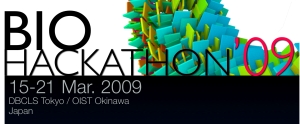Guideline for Web Services (Manifesto ver.2.0)
This document is a guideline to design web services toward integration.
- REST
- For a database service, REST services to call entries and search by a keyword should be provided.
- To unify query formats, the query languages should conform to Common Query Language.
- A method to get the number of hits for a keyword should be provided.
- A method to get the list of hit entries for a keyword should be provided.
- A method to get the entry from an ID should be provided.
- If the entry does not exist, the method should return code 404 and an empty entry.
- Path parameters (/foo/bar/baz) should be used for a REST URL and query parameters (param1=value1¶m2=value2) should not be used.
- Lower-case letters should be used for path parameters in principle.
- If a URL ends "/", a list of possible strings after the URL should be returned in principle.
- When a method returns a list, each line should correspond to an entry and each line should be divided by tab into fields.
- As REST web services can be called from AJAX, an alternative could be JSON.
- HTTP codes should be used for error signaling. It is allowed to also send in the answer some text.
- SOAP
- A manual for each method should be provided.
- The manual should include examples of parameters such that the method works well by them.
- Each method should be verified to use Java (for instance, JAX-WS or JAXB), Perl ( SOAP::Lite), Ruby and Python ( SOAP.py, ZSI, TGWebServices or soaplib).
- Providing sample codes for the common SOAP toolkits in such languages is recommended.
- Providing test case projects for free testing packages like soapUI
- For asynchronous services, a job ID should be provided.
- When any unrecoverable error occurs during processing at a server, a method should return "SOAP Fault".
- A manual for each method should be provided.
- The following data types should be used:
- INSDC INSDSeq for sequences,
- MIAME for expression data,
- GLYDE-II for glycans,
- Tab format for key-value.
- REST or SOAP
- For retieval methods (to get an entry or search entries by keywords), REST is recommended. For methods of analysis service, SOAP is recommended.
TogoWS Guidelines
REST
TogoWS stated the rulers to design the services to call and search entries as below:
How to call the entries
http://togows.dbcls.jp/entry/database/entry_id[,entry_id2,...]/field[.format]
If the name space of the databases are in URL:
How to add the name spaces for the institution, release_numer of the database:
NOTE: The default fotmat for the entries is “.txt”, and can be in the specified format by adding the suffix, such as “.xml”.
Calling a part of the entry: The method to call the part of the entries by field names is the extension of TogoWS using BioRuby/BioPerl?
How to search the entries
http://togows.dbcls.jp/search/database/query+string[.format][/offset,limit[.format]] http://togows.dbcls.jp/search/database/query+string/count
The format of "query string" to be based on “Common Query Language" Common Query Language
The conversion of data format and ID
http://togows.dbcls.jp/convert/data_source.format
Metadata
- The list of the databases
http://togows.dbcls.jp/entry/ http://togows.dbcls.jp/search/
- The list of the fields
http://togows.dbcls.jp/entry/DBname/
- The list of the formats
http://togows.dbcls.jp/entry/DBname/formats
SOAP
- Required test environment
- Perl: Soap::Lite 0.69
- Ruby: SOAP4R 1.5.5 (Ruby 1.8.6 bundle)
- Python: SOAPpy 0.12.0
- Java: Axis 1.4
- SOAP version 1.2, at least
- Calling a method with asynchronous
- The name for the method with asynchronous end with “Async” and return job ID
- Rerurn job ID to “CheckAsyncStatus??” method and give either RUNNING, COMPLETED, or ERROR
- Method name for the method with asynchronous mst be” BeginInvoke? methods+Result” and stae job ID as a parameter
History
- version Manifest2.0_e? (2009/03/20)
